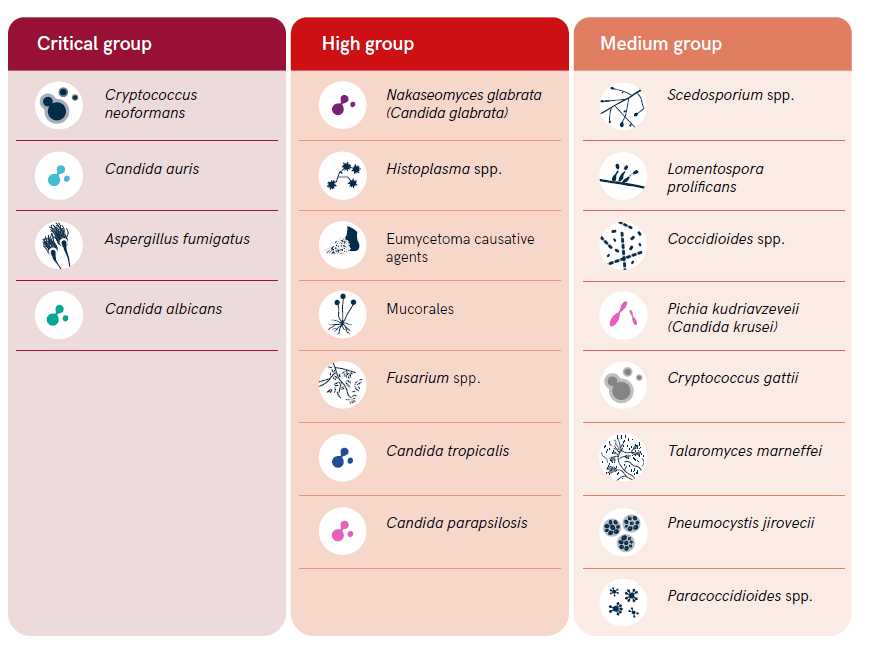As the first global effort to systematically prioritize fungal pathogens, the World Health Organization (WHO) has released a catalogue of 19 “priority pathogens” representing those they believe are the greatest threat to public health. The WHO fungal priority pathogens list (FPPL) “aims to focus and drive further research and policy interventions to strengthen the global response to fungal infections and antifungal resistance”.
According to WHO most fungal pathogens lack rapid and sensitive diagnostics and those that do exist are not widely available or affordable globally. Currently, there are four classes of antifungal medicines available on the market, and there few candidate medications in the clinical pipeline. The populations at the greatest risk of invasive fungal infections included those with cancer, HIV/AIDS, organ transplants, chronic respiratory disease, and post-primary tuberculosis infection.
There are three categories within the FPPL, namely critical, high, and medium, with the fungal pathogens in each priority category ranked due to their potential public health impact and/or emerging antifungal resistance risk.

The FPPL is focused on the systemic invasive infections of fungal pathogens that may lead to acute and subacute systemic fungal infections that drug resistance or other treatability, and management challenges exist. The pathogens included are all associated with serious risk of mortality and/or morbidity.
The FPPL report prioritizes the improvement of a coordinated action across the medical (clinical), public health training programs and curricula sectors and proposes actions and strategies for policymakers, public health professionals and other stakeholders.
WHO’s proposed strategies focus on generating evidence and improving response to the fungal priority pathogens they have identified, including preventing the development of antifungal drug resistance: 1) strengthening laboratory capacity and surveillance; 2) sustaining investments in research, development, and innovation; and 3) enhancing public health interventions for prevention and control.
RHP’s group of Certified Industrial Hygienists and Certified Safety Professionals provide environmental health and safety solutions for you in workplaces nationwide. Contact RHP Risk Management for an initial consultation.
